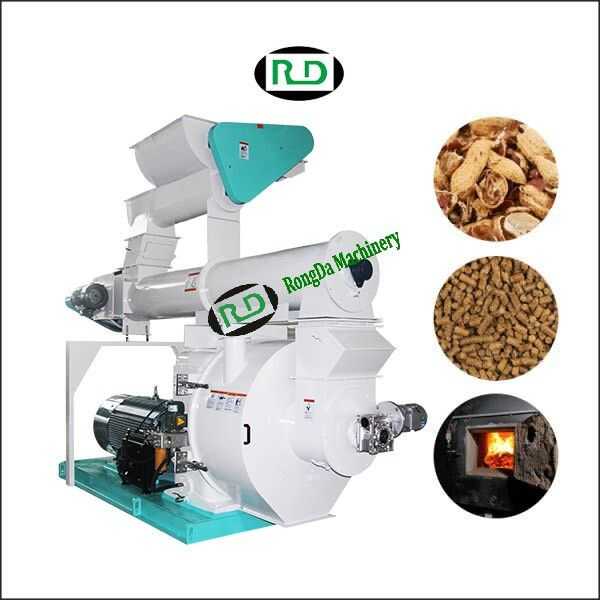Welcome to Rongda Machinery Co., Ltd
Toggle Navigation
As the world navigates its energy transition, biomass energy is rapidly emerging as a crucial renewable resource. Derived from organic materials such as agricultural by-products, wood chips, and dedicated energy crops, biomass energy transforms these natural resources into sustainable power. This transition not only offers considerable environmental benefits but also holds the potential for economic growth. This article delves into the current landscape of biomass energy and explores the future role of biomass pellet machines in advancing this sector.
Biomass energy is gaining traction across various industries, including agriculture, forestry, and livestock. Thanks to recent technological advancements, the efficiency of biomass energy generation has significantly improved. Modern technologies like gasification, combustion, and power generation have made the conversion of biomass into usable energy more efficient and cost-effective. Additionally, many governments and regions have implemented supportive policies, coupled with substantial investments in research and industry growth, to encourage the widespread adoption of biomass energy.
One of the key advantages of biomass energy lies in its renewability and minimal environmental impact. Unlike fossil fuels, the carbon dioxide released during biomass combustion is reabsorbed by plants during their growth cycle, ensuring carbon neutrality. Furthermore, biomass energy plays a pivotal role in waste reduction, as it helps divert organic waste from landfills and turns it into valuable energy.
Despite its many benefits, the development of biomass energy faces a few challenges. These include the inconsistent supply of biomass feedstock and the high costs associated with research and development. Addressing these issues will require continuous innovation, along with improved collaboration across the industry.
Central to the biomass energy ecosystem are biomass pellet machines, which play a vital role in converting raw biomass materials into uniform, efficient pellet fuel. The advancements in pellet machine technology have had a direct impact on the effectiveness and efficiency of biomass energy production. Today, there is a wide range of pellet machines available, from small-scale household units to large industrial systems, meeting various production demands. Modern machines not only increase production efficiency but also improve pellet quality, ensuring a more stable and effective combustion process.
Looking towards the future, the next generation of biomass pellet machines will prioritize greater efficiency and environmental sustainability. With growing environmental regulations, new pellet machines will integrate advanced materials and designs aimed at reducing energy consumption and emissions. Additionally, the adoption of smart control systems and automation will enhance the ease of operation, as well as ensure more consistent production processes.
The role of biomass pellet machines is expected to expand beyond energy generation to encompass agricultural waste recycling and livestock waste management. By efficiently processing agricultural residues and forestry by-products, pellet machines contribute not only to the production of clean energy but also help mitigate environmental challenges, promoting resource circularity and reducing waste.

As a renewable and sustainable energy solution, biomass energy presents a promising future. With the growing global demand for renewable energy sources, biomass energy is poised to play an increasingly influential role. Biomass pellet machines, as essential components in this sector, will continue to evolve, driving innovations and the broader adoption of biomass-based energy solutions.
With strong policy support and increasing market demand, the biomass energy sector is on track for significant growth. Technological advancements, industry evolution, and expanded market opportunities will be the key drivers of future progress. Through continued innovation and investment, biomass energy will play a critical part in advancing global sustainability objectives.